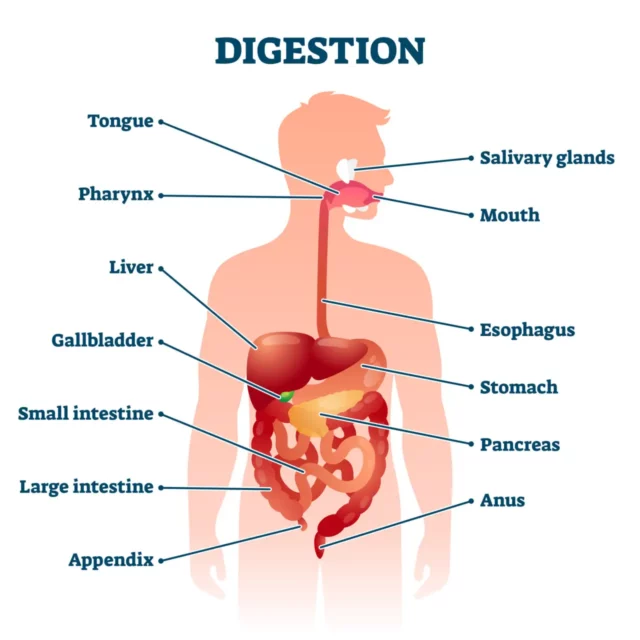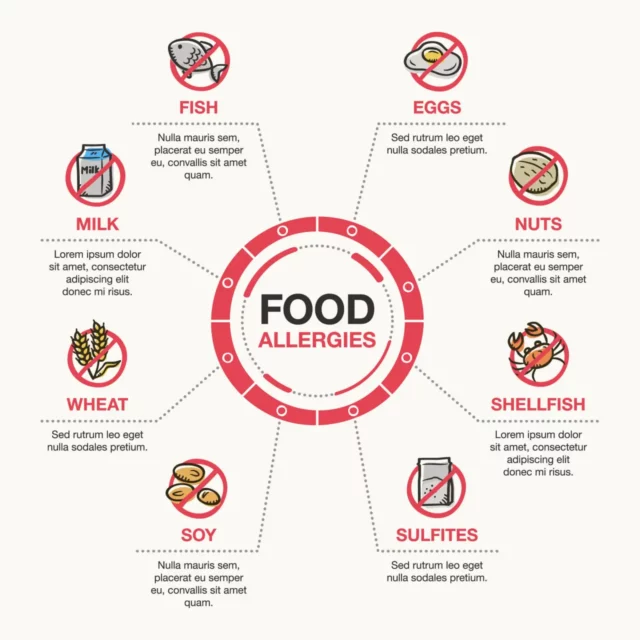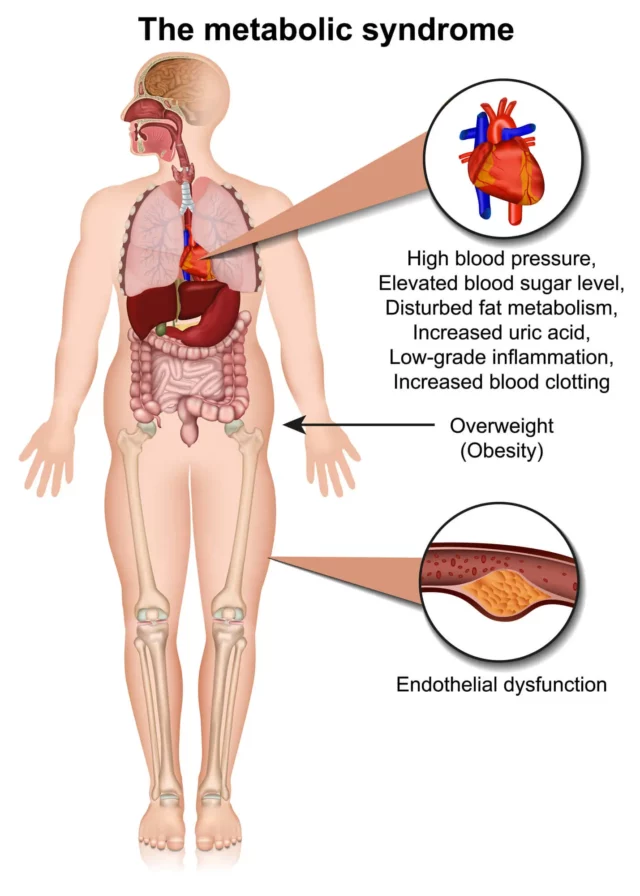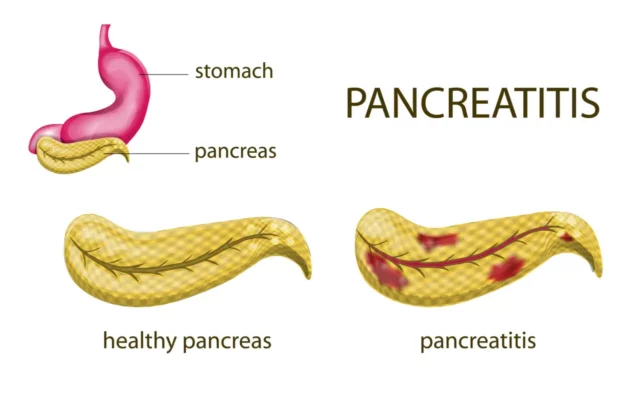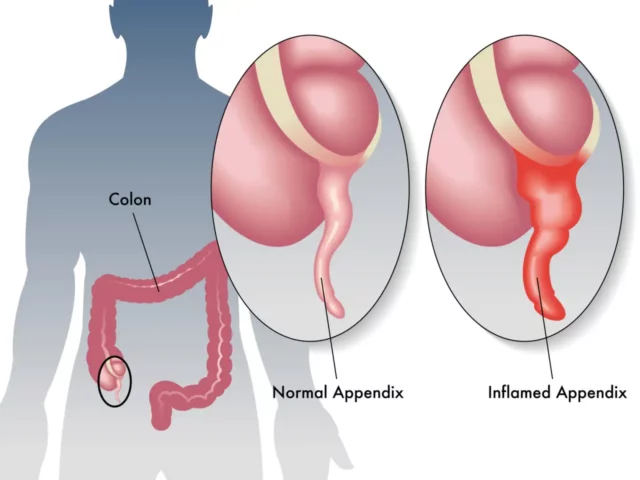If you’ve ever experienced abdominal pain after eating a low-quality meal, you’re certainly not alone. Most people will experience abdominal distress at least once in their lives, and this condition accounts for over 9.6 million visits to emergency departments each year.
In most cases, mild abdominal discomfort is temporary, and it can be treated with simple dietary or lifestyle adjustments. However, acute or persistent abdominal pain should never be overlooked. Sometimes, it can be a sign of an underlying serious condition that requires immediate medical attention.
Fortunately, you don’t have to go through prolonged uncertainty to find an effective treatment approach. With NextPain Care’s comprehensive approach, you can address the root of your abdominal pain and take the first step to restored health. Here’s all you need to know.
Four Types Of Pain In The Abdominal Area
Although pain in the abdomen is an extremely widespread condition, not all types of abdominal pain are equal. Abdominal pain may be described as:
- Generalized: Generalized pain affects half of your abdomen or more. Generalized abdominal pain may be caused by indigestion, viruses, gas, or, in severe cases, blockages affecting the intestines.
- Cramps: This type of pain is often associated with digestive issues, and it may be accompanied by diarrhea, gas, and bloating.
- Colic: Colicky pain comes in waves, develops suddenly, and stops abruptly. It is often caused by contractions of the components of the abdomen, such as the intestine or gallbladder. This type of pain is frequently accompanied by sweating and vomiting, and it may indicate kidney stones or gallstones.
Your abdominal pain can also be localized to a certain area of the abdomen. In this case, there may be a problem with one or more organs. Understanding the anatomy of your abdomen can help you diagnose your pain correctly and seek adequate care.
Thinking of your abdomen as subdivided into four quadrants, the areas where you experience pain may indicate different diseases. Here’s an overview:
Upper Right Quadrant
The right upper abdomen is where the bile ducts, gallbladder, right kidney, and liver, as well as parts of the small and large intestines, are located. Pain in the upper right quadrant may be related to hepatitis, gallstones, gallbladder inflammation (cholecystitis), kidney infections, kidney stones, and large bowel obstructions. It may also be a symptom of liver, gallbladder, or bile duct cancer.
Upper Left Quadrant
The upper left abdomen houses the stomach, spleen, and pancreas. Adjacent to these organs are also the left kidney, the heart, and the left lung. Pain in this area may indicate stomach ulcers, stomach cancer, kidney stones and infections, gastritis, inflammation of the pancreas (pancreatitis), pancreatic cancer, or an enlarged spleen (splenomegaly).
If the pain stems from your chest, you may have angina, heartburn, heart attack, pneumonia, or pulmonary embolism, which are problems related to the heart or lungs.
Lower Right Quadrant
The lower abdomen houses the small and large intestines. Pain in this area usually indicates problems related to gastrointestinal diseases, as well as to the ureters, uterus, or ovaries. In particular, if the pain is felt on the lower right side of your abdomen, it may indicate problems with the appendix, such as appendicitis or appendix cancer.
Lower Left Quadrant
If your pain is localized to the left side of your lower abdomen, you may be battling problems with the diverticula, a component of the bowel wall. These issues include diverticulosis and diverticulitis of the colon.
Pain localized in the lower abdomen can also indicate a range of problems that affect the reproductive organs as well as the intestines. Some of these issues include:
- Irritable bowel syndrome
- Crohn’s disease
- Ulcerative colitis
- Obstructions in the bowel
- Cancer of the small intestine, colon, ovaries, or uterus
- Hernia
- Kidney stones
- Endometriosis
- Ovarian cysts
- Pelvic inflammatory disease
- Abdominal aortic aneurysm
- Peritonitis
As you can see, the causes of abdominal pain are many and various. However, with the right knowledge and diagnostic instruments, you can get to the root of the problem and choose an adequate line of treatment. Below, we’ll delve deeper into the less and more serious causes of abdominal pain.
Less Serious Causes Of Abdominal Pain
Abdominal pain is often the manifestation of digestive issues, and around 11% of the adult global population often experience meal-related abdominal discomfort. More importantly, learning to recognize the less serious causes of abdominal pain helps you rule out more severe conditions and find an at-home remedy that can relieve your discomfort.
Some of these causes include:
- Constipation: Constipation occurs when you are unable to completely empty your bowel or when you are not passing stools regularly. Fecal matter builds up and hard or lumpy bowel movements can cause temporary pain and distress. Constipation can be addressed through dietary changes, especially by introducing foods rich in fiber and by staying hydrated. In severe cases, osmotic laxatives or laxative stimulants can help. It is estimated that around 16% of the adult population suffers from constipation to some extent.
- Gas: Gas in the stomach may be caused by swallowing air when eating or drinking. However, some high-fiber foods such as legumes, fruits, vegetables, and whole grains can lead to the formation of gas in the colon (large intestine), which occurs when bacteria in the gut ferment carbohydrates. Dietary factors such as drinking carbonated beverages and eating too quickly, as well as suffering from constipation and food intolerances, can also increase the risk of gas. While most gas is passed through your mouth or anus multiple times a day, trapped gas that cannot move freely through the digestive system may cause pain.
- Indigestion: Dyspepsia occurs due to problems with the digestive process. While this condition is rarely cause for concern, it can lead to distressing symptoms like uncomfortable fullness after a meal, burning sensations in the upper stomach, bloating, and nausea.
- Food allergies: Food allergies occur when your body’s immune system identifies a certain food or ingredient as harmful, even though it isn’t. As a consequence, it triggers the release of antibodies responsible for fighting back the presumed attackers.
This reaction can cause abdominal pain as well as diarrhea and vomiting. Some common food allergies include dairy, eggs, nuts, fish, and shellfish. It is estimated that over 32 million Americans suffer from food allergies.
- Lactose intolerance: Food intolerances occur when your digestive system has trouble breaking down and digesting certain foods, such as milk. If you are intolerant to lactose or gluten, you may experience symptoms like abdominal pain, gas, bloating, constipation, and diarrhea.
- Mild food poisoning: Food poisoning occurs after eating or drinking something that has been contaminated by certain bacteria or germs such as campylobacter, salmonella, Escherichia coli (E. coli), and norovirus. Abdominal pain, vomiting, diarrhea, low-grade fever, chills, and a loss of appetite are common symptoms of mild food poisoning.
Although these are less serious causes of abdominal pain, you should seek immediate medical attention if your symptoms are acute or persistent. Indeed, severe food poisoning can lead to dehydration and kidney damage, while certain food allergies can trigger life-threatening complications like anaphylactic shock.
More Serious Conditions Associated With Abdominal Pain
Although abdominal pain is common, it should not be overlooked—especially when it is recurring or persistent. According to estimations, 1 in 10 people who experience abdominal pain suffer from acute or potentially life-threatening diseases like diverticulitis and appendicitis.
In some cases, chronic abdominal pain may also be a symptom of another underlying condition that requires specialized treatment. Below, we’ll look at the most common ones.
Metabolic Dysfunction
Metabolic dysfunction refers to disorders of the metabolism. Metabolism refers to all of those processes and chemical reactions involved with breaking down the nutrients in the foods you eat – such as protein, carbohydrates, and fats – to create and store energy, in the form of acids and sugars.
If your body is unable to digest foods as normal, you may experience symptoms such as high blood pressure, high levels of triglycerides in the blood, high blood sugar, and a larger waistline.
These health conditions are directly linked to an increased risk of complications like cardiovascular disease, diabetes, and chronic fatigue. However, impaired metabolic processes also impact how food is broken down and digested, which can lead to symptoms like indigestion, constipation, diarrhea, and abdominal pain.
Irritable Bowel Syndrome
Irritable bowel syndrome (IBS) impacts the function of the stomach and intestines, which are the parts of the digestive system known as the gastrointestinal tract. IBS derives from problems in the gut-brain axis, which is the channel of communication between the central nervous system and the digestive system.
If you have IBS, your body may be unable to correctly digest certain foods and ingredients, which leads to symptoms like bloating, constipation, and diarrhea, as well as changes in the appearance and frequency of bowel movements. Moreover, trapped gas and cramps related to difficult bowel movements can result in ongoing abdominal pain.
In milder cases, the symptoms of IBS can be treated with lifestyle changes and dietary modifications. However, often, IBS is a lifelong condition that needs to be managed in the long term.
According to studies, the abdominal pain, intestinal gas, and bloating associated with irritable bowel syndrome directly correlate to self-perceived lower quality of life.
Gastroenteritis
Also known as “stomach flu,” gastroenteritis occurs when your digestive system is impacted by a bacterial or viral infection. It usually develops through contact with an infected person or due to exposure to viruses like norovirus or rotavirus through the consumption of contaminated foods or drinks.
Gastroenteritis can cause symptoms like abdominal cramps, pain, vomiting, diarrhea, and nausea, as well as fever, fatigue, and headaches. Although stomach flu usually resolves itself in a few days, severe cases of gastroenteritis can cause dehydration, severe thirst, blood in stools, and ongoing vomiting. In these cases, you should seek emergency medical care.
Pancreatitis
The pancreas is a long, flat gland in the abdomen, located between the stomach and the spine. This gland is responsible for producing hormones such as insulin and enzymes like amylase, which support digestive processes and help regulate blood sugar levels.
Excessive consumption of alcohol, blockages caused by gallstones, and other forms of injury to the pancreas might trigger the immune system reaction, which causes inflammation.
In turn, high levels of inflammation may lead to pancreatitis, a condition that causes redness and swelling in the pancreas. Pancreatitis may be chronic or acute, and it can cause symptoms such as abdominal pain that radiates to the back, nausea, vomiting, changes in heart rate, indigestion, and loss of appetite.
Pelvic Inflammatory Disease
Pelvic inflammatory disease (PID) is an infection of the female reproductive organs, which can spread through sexually transmitted bacteria to the vagina, uterus, ovaries, and fallopian tubes.
In most cases, the symptoms of PID are mild, hard to recognize, or absent.
They include pain in the lower abdomen and pelvis, pain during sex or urination, unusual vaginal discharge, and bleeding from the vagina, as well as fever and chills.
Although PID can easily be treated by seeking prompt medical attention, it can cause scar tissues and abscesses (pockets of fluids) in the reproductive tract if left untreated. These complications can lead to permanent damage to the reproductive system.
How To Know If Your Abdominal Pain Is Serious
Abdominal pain may occur if you’ve eaten something you are intolerant to or if you’ve been in contact with a person affected by gastroenteritis.
However, as studies report, as many as 10% of patients visiting an emergency department because of abdominal pain have a severe or life-threatening disease that requires immediate medical attention. Because of this, it is essential to know if your symptoms are serious.
Here are some of the signs that you should get in touch with your doctor immediately:
- Hard Abdomen: An extremely hard or swollen abdomen may be a sign of constipation or IBS, but it can also indicate gastric cancer (a form of cancer of the stomach lining), diverticulitis, or inflammatory bowel disease (IBD).
- Abdominal tenderness: Experiencing pain when touching your abdomen may be a sign of internal injuries, infections, and chronic conditions of the digestive tract. Seek immediate care, especially if tenderness is accompanied by vomiting blood, or chest, neck, and shoulder pain.
- Coughing up or vomiting with blood: Vomiting or coughing up blood is a common sign of severe injuries to areas of the respiratory or digestive system. These include stomach ulcers, gastritis, liver disease or liver failure, damage to the esophagus (food pipe), and problems with blood vessels in your lungs. It can also indicate cancers affecting the esophagus, lungs, stomach, or pancreas.
- Non-stop vomiting: Vomiting is associated with several diseases of the digestive system. However, if you are vomiting non-stop, you may be at risk of severe dehydration. Ongoing vomiting may also indicate a life-threatening condition such as concussion, food allergies, gallstones, and appendicitis.
- Bloody diarrhea: Bloody diarrhea requires immediate medical care, as it may be a sign of infection (e.g. E. Coli), inflammatory bowel disease (IBD), peptic ulcers, ulcerative colitis, or ischemic colitis (reduced blood flow to the colon).
- Pain in the chest area or pressure: Chest pain associated with abdominal pain may indicate severe injury or disease affecting vital organs such as the intestines and lungs. A study published in 2021 also shows that abdominal pain is a common symptom of heart attacks, acute coronary syndrome, and aortic syndromes.
- Difficulty in breathing: Shortness of breath associated with abdominal pain may indicate severe allergic reactions, celiac disease, and anxiety or panic disorders, as well as internal injury and hernia.
- Dizziness: Abdominal pain associated with dizziness and fainting should be treated as a medical emergency, as it may indicate blockages or leaks in the intestines, food poisoning, acute pancreatitis, or heart attack.
You should also seek immediate medical care if you experience sudden pain in the right side of your lower abdomen and pain when coughing, as well as nausea, vomiting, and fever. These might be signs of acute appendicitis, a condition that occurs when the appendix becomes inflamed, damaged, or swollen. This is a medical emergency that affects up to 8.6% of the population.
Diagnosing Pain In The Abdomen
As we have seen above, pain in the abdomen can be a sign of a range of conditions with overlapping symptoms. This makes diagnosing the causes of pain challenging, and many patients end up being undertreated or receiving an inaccurate diagnosis.
However, doctors may use a range of diagnostic tools to identify the root cause of your pain and rule out other conditions that require more specific care. These tools include:
- A thorough review of the nature, frequency, and location of your symptoms
- A medical examination, which includes palpating (pressing) the abdomen and the pelvis
- An assessment of your medical history
- Imaging tests to help obtain a clear picture of the digestive system, including X-rays, gastrointestinal series (UGI), CT scans, ultrasounds, and MRIs
- Lab tests such as a complete blood count, urine tests, and allergy tests
- Pregnancy tests
It is important to keep in mind that the intensity of your pain isn’t always correlated to how serious its cause is.
For example, you may have excruciating abdominal cramps due to minor conditions like gas or gastroenteritis, while life-threatening conditions like colon cancer may not cause pain at all. Regular checkups can help you prevent the most severe complications.
At-Home Remedies For Mild Causes
If your abdominal pain is caused by something you ate or by intolerance to some foods and drinks, there are easy at-home remedies that you can try to obtain relief.
These include:
- Drink licorice to reduce gas: Licorice root has antispasmodic properties, thus helping with cramps and bloating. This ingredient can also support the production of saliva, which aids digestion.
- Consume ginger for indigestion: Ginger root tea and supplements can reduce acid reflux, speed up the movement of food through the gastrointestinal tract, and reduce bloating and gas. Studies have also shown that taking ginger regularly can reduce inflammation markers.
- Sip peppermint tea to relax your intestinal muscles: Peppermint tea may reduce heartburn and gas, and ease the symptoms of IBS. A 2018 study on animals also showed that peppermint oil may help relax the muscles in the intestines, ease inflammation, and reduce pain by activating the antipain channel in the colon.
- Incorporate the bananas, rice, applesauce, and toast (BRAT) diet: Originally used to ease the symptoms in children, the BRAT diet recommends eating easy-to-digest foods that will give the stomach a rest. Today, it is recommended to avoid eating for six hours after experiencing diarrhea or vomiting, then slowly reintroduce clear drinks and mild foods like oatmeal and boiled potatoes. This diet does not provide enough nutrients to be sustainable in the long term, and it should only be adopted during the recovery period after a flu.
- Avoiding difficult-to-digest foods: If your abdominal pain is correlated to digestive problems and disorders, you should avoid foods that are harder to digest or that may irritate the gastrointestinal tract. These foods include dairy products, acidic foods, fatty foods, fried ingredients, artificial sweeteners, and processed foods, as well as alcohol, caffeine, and spicy foods.
- Drinking aloe juice: Aloe vera juice may help digestion, ease gastroesophageal reflux, and regulate blood sugar. However, recent research has shown the cancerogenic and toxic effects of ingesting aloe vera. Consult your doctor before using aloe juice as a remedy.
- Avoid consuming food or drinks that may cause allergies or intolerances: If you have been diagnosed with food allergies and intolerances, avoid these foods to prevent adverse reactions.
Conventional Medicine For Moderate To Severe Abdominal Pain
If home remedies do not provide relief, your doctor may recommend pharmaceutical or surgical treatment avenues. Given the potential side effects and recovery times associated with these therapies, this decision should not be made lightly and should always be preceded by an accurate diagnosis of your condition.
Over-the-counter (OTC) Medications
Recommended OTC medications depend on the symptoms you are experiencing. For example:
- Pain relievers like acetaminophen (Panadol) may help with generic abdominal pain.
- Medicines that contain simethicone may help with gas and gas pain.
- Anti-acid medications like Pepcid can help with heartburn and gastroesophageal reflux.
- Stool softeners or laxatives can help with constipation.
- Medicines that include ingredients like loperamide can help with cramping and diarrhea.
It is important to avoid non-steroidal anti-inflammatories (NSAIDs) when seeking abdominal pain relief. Medicines like aspirin or ibuprofen work by blocking cyclooxygenase (COX) enzymes, which are responsible for the production of inflammatory chemicals like prostaglandins.
Surgery
Surgical interventions are considered a last resort in the treatment of abdominal discomfort. The most commonly used types of surgery include:
- Appendectomy: This surgical intervention is used to remove a diseased appendix in the event of acute appendicitis, and it is carried out following a medical emergency.
- Small bowel resection: This surgery aims to remove part of the small intestine (small bowel), which may be affected by blockages or disease.
- Laparotomy: Laparotomy involves creating a large incision in the stomach area to gain access to the abdominal cavity. It can be used to diagnose conditions that may be impacting the digestive system or to examine diseased organs. A less invasive option to laparotomy is a laparoscopy, which involves performing only a small incision and inserting a thin viewing instrument into the abdomen.
How NextPain Care Approaches Abdominal Discomfort
In most cases, abdominal pain is nothing more than a temporary, minor issue that resolves itself in a matter of days. However, new surveys have found that 40% of the US adult population – or 60-70 million Americans – struggle with chronic disorders of the gastrointestinal tract.
Adding to the challenge, getting a diagnosis and identifying the true cause of abdominal pain remains difficult, leading to millions of patients being undertreated for their condition.
NextPain Care is a physician-led organization that excels by combining physical and behavioral therapies within an innovative three-tier system, helping you address the underlying factors of your abdominal disorder and work towards reducing your pain and improving your quality of life. This method is rooted in evidence-based results and data, ensuring that our treatments are scientifically proven and effective.
We begin with conservative methods such as physical therapy, lifestyle adjustments, and medication management to manage pain effectively and non-invasively. In collaboration with these treatments, we offer advanced procedures like epidural steroid injections, nerve blocks, and spinal cord stimulation for more comprehensive pain management.
This unique blend of therapies allows us to deliver holistic care that meets the diverse needs of our patients.
We Manage Abdominal Pain-Related Conditions
Relieve The Discomfort And Pain In Your Abdomen
Abdominal pain is common, but it should not be considered a normal part of your life! Thanks to the approach developed by NextPain Care, you can work towards improving your digestive health.
Our physician-led practice uses a three-level system to provide comprehensive care, focusing on conservative treatments, medications, and advanced procedures, if needed. We aim to help you move more easily and get back to the activities you enjoy. Let’s work together to find the right solution for you.
Experiencing abdominal pain might suggest an underlying serious condition.

